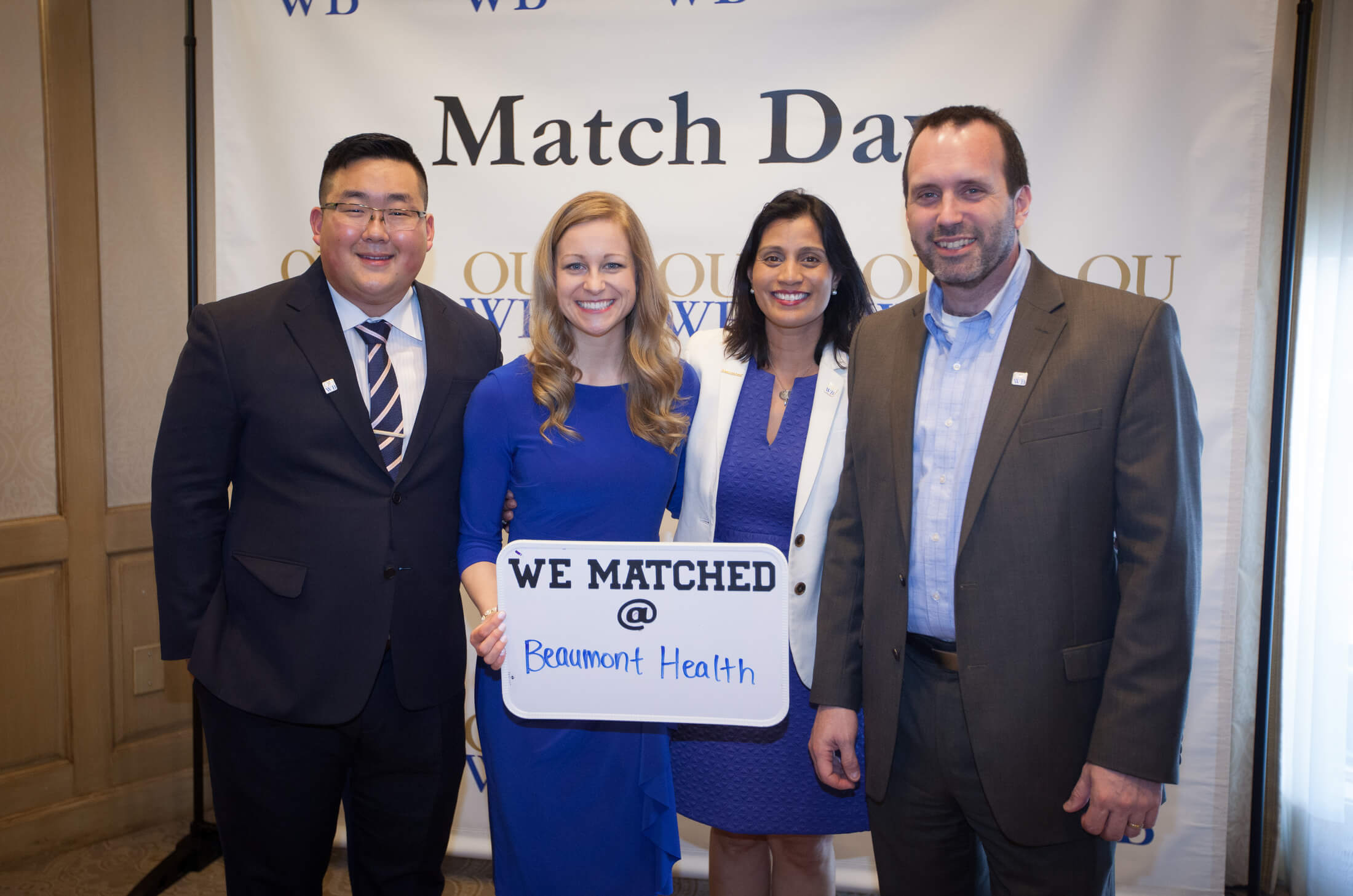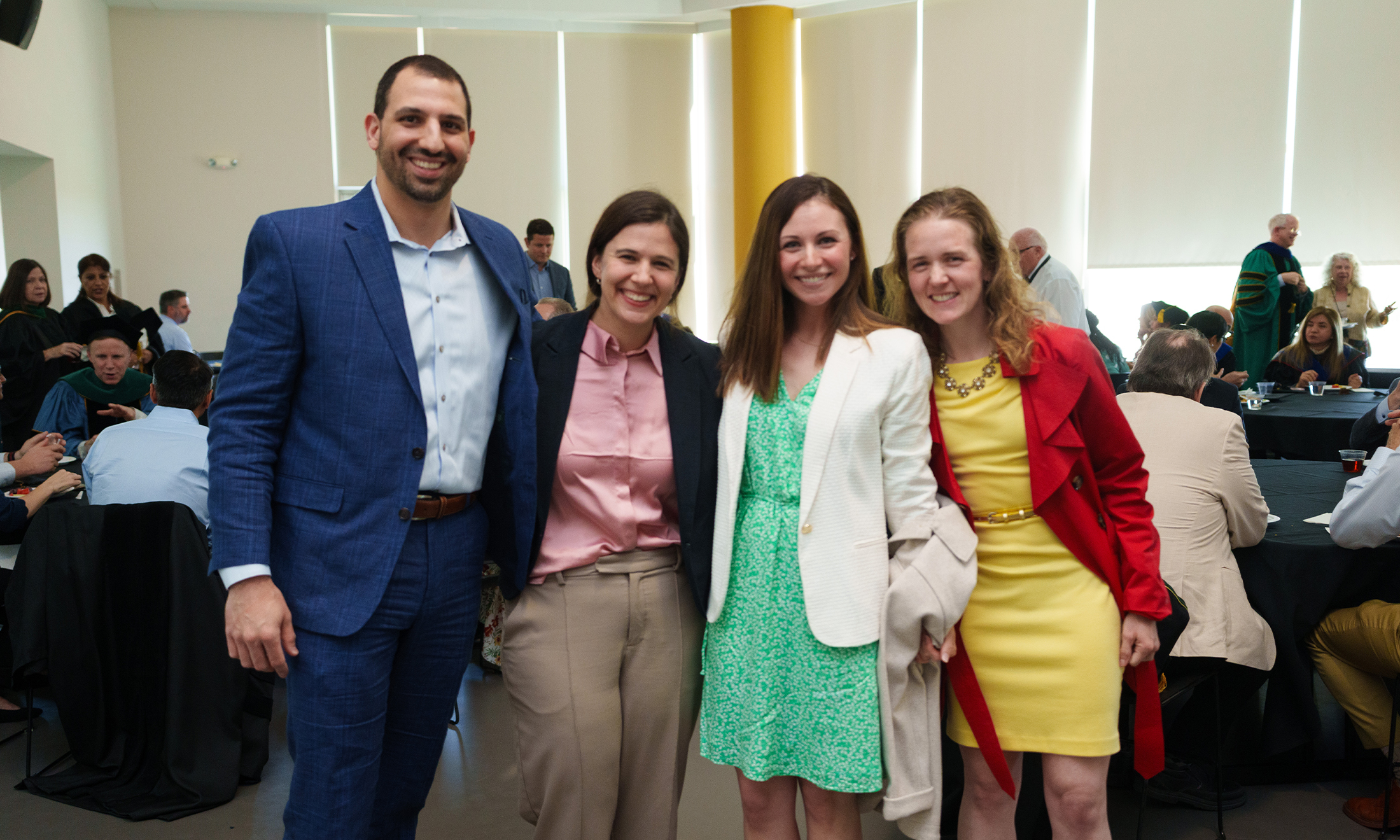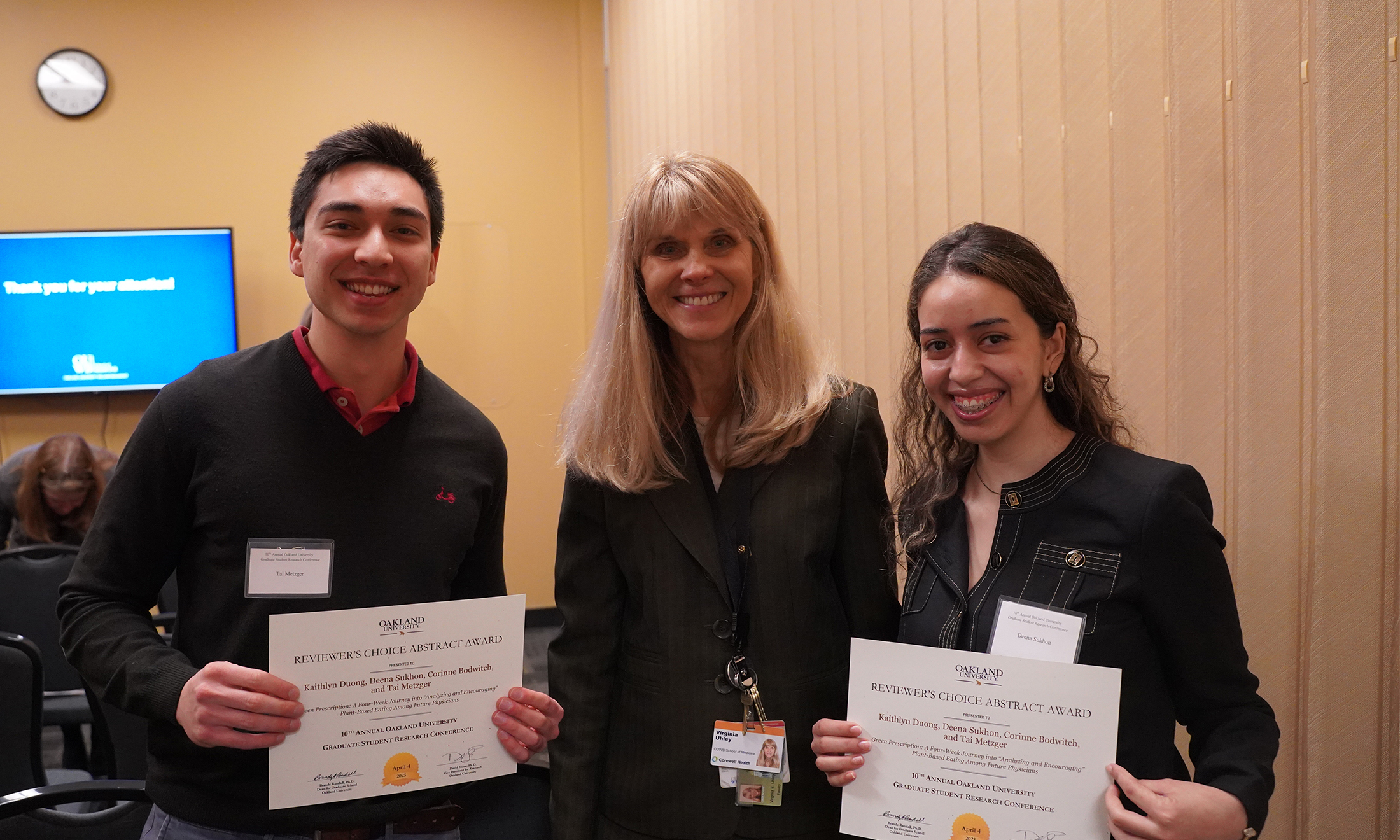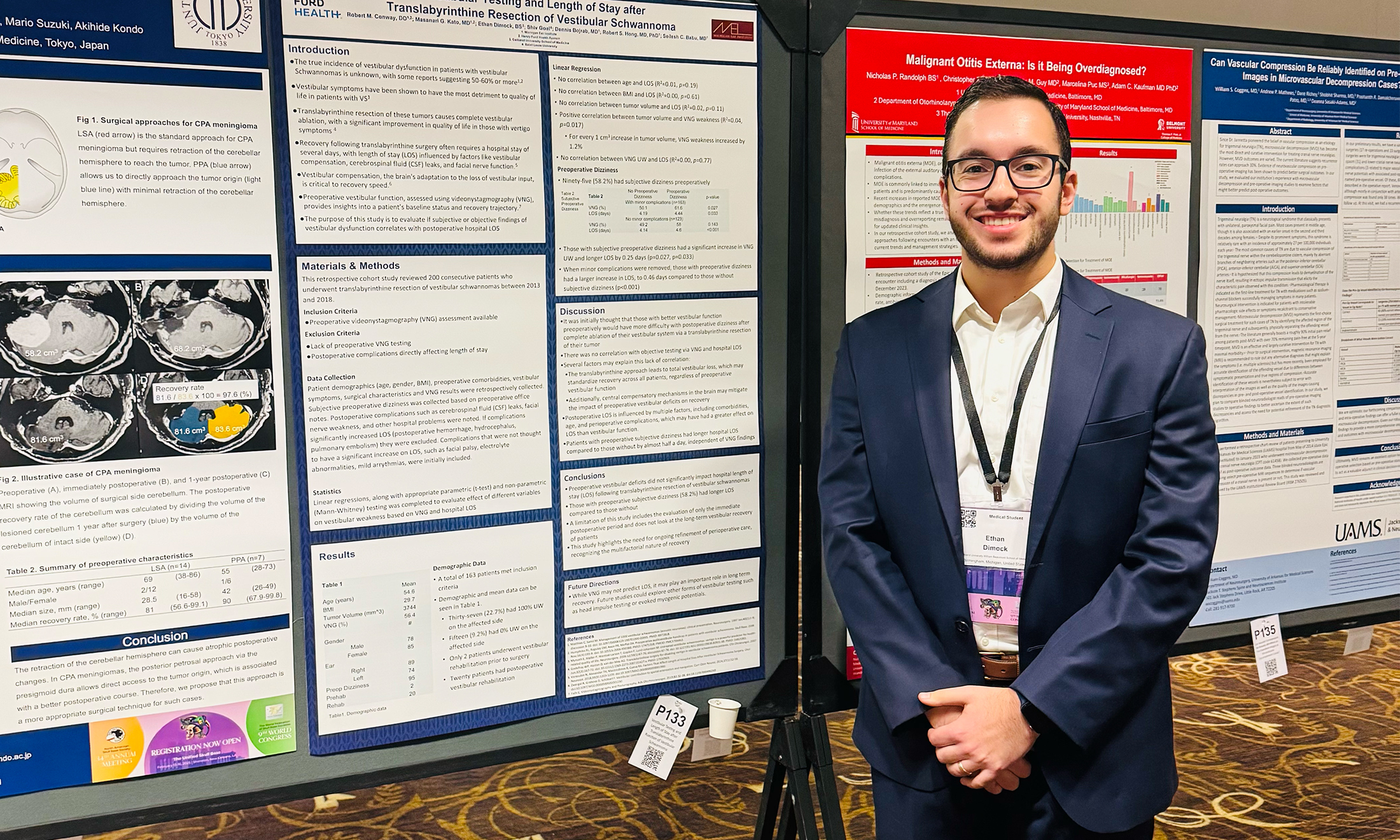Keys to success
Two OUWB alumni share thoughts on what it’s like to be male OB-GYNs
Two alumni from Oakland University William Beaumont School of Medicine recently shared details about what it’s like to be male OB-GYN physicians.
Andrew Koo, M.D., ’15, and Torey Asao, M.D., ’19, participated in an OB-GYN Careers & Male Perspectives Panel. The Feb. 16 event was hosted by the OB-GYN Interest Group and held virtually.
Koo is a clinical instructor at the George Washington University School of Medicine and Health Sciences. He completed his residency at Beaumont Health in July 2020.
Asao is a third-year resident iat Beaumont.
Koo and Asao shared information about how they presented themselves as applicants; how they got to where they are today; and the advantages and disadvantage of being a male in the field.
“When I applied to OB-GYN residency, 88% of the applicants identified as female and 12% didn’t,” said Koo. “It was certainly different to be in that very, very small proportion of applicants.”
Here are some of the highlights from the 90-minute session.
What kind of good learning habits would you recommend to third-year medical students?
Koo: When you try to describe who the best medical students are, they’re present without being seen. They’re helpful without being loud. They’re where you need them to be without asking them to be there, but then they’re not there when you don’t what them there. You are towing this very fine line with people who are stressed out and tired and exhausted and focused on so many different things in one moment.
Asao: Prepare as much as you can. Talk to somebody who was just on a rotation so you can get an idea of what to expect. That can really get your feet on the ground and running. The students who impressed me the most are the ones that can make my job easier…take really great histories, are really succinct in their presentations, and have shown and demonstrated that they’ve prepared for whatever I might ask them to do. Another thing that’s important is making sure you’re doing what you’re asked. For example, going in and introducing yourself to the right people. As easy as that might sound, sometimes that’s not really the case. Doing things the right way every single time is really important.
How can male OB-GYN physicians improve in their bedside manner, the way they perform procedures, and their understanding of the female patient perspective?
Koo: The key to bedside manner is to create an environment where your patients feel like they can trust you. And that’s a combination of proving to them that you’re smart enough to take care of them, and that you are normal enough for them to feel comfortable around you. When it comes to procedures…ask questions in a comfortable way. If you’re uncomfortable, they’re uncomfortable. If you’re nervous, they’re nervous. I often ask patients if they’re nervous and they’re like, “Yes.” I say, “It’s normal for you to be nervous, but I’m not nervous and nobody that’s going to be in the room taking care of you is nervous.” I remind people that while this might be a monumental moment or an uncomfortable moment for them, this is a very comfortable thing that I do all of the time.
Asao: When you are in front of a patient, you want to make sure that you are showing them that you are here to address their issues and care for them. As a male, that’s one thing you can do consistently, every single time with your patients.
What are the advantages and disadvantages of being a male OB-GYN?
Koo: Every day what we do is foster trust between people, and we ask people to put their faith in our knowledge and our skillset. It is certainly much easier to trust someone that looks and sounds like you and comes from the same place as you. (As a male OB-GYN) you’re trying to mend the barriers of difference to say, “I don’t have to look like you or feel what you’re feeling or have been through what you’ve been (through), to be able to be compassionate and take really good care of you.” Our job is to remove that difference and put it in a place of “OK, I’m not a male OB-GYN, I am your OB-GYN.”
Have you received memorable, helpful advice from female colleagues that helps you interact with patients more effectively?
Asao: Early in your career, it is not uncommon for some residents to be taken aside and told “Hey, you know, I think we need to be a little bit more gentle when we do this.”
When did you schedule your OB-GYN clerkship?
Asao: I think most people schedule what they want to go into in the December-January timeframe so there is some experience in the hospital. But I ended up having OB as my second-to-last rotation and let me tell you that it doesn’t matter where it is, you can make a good impression; it doesn’t matter when it is, you are never too late to choose.
What are some things applicants should look for in OB-GYN residency?
Asao: Having wonderful people surrounding you and the ability to be flexible with your schedule and your program and how you structure your own learning is super important. (At Beaumont) we make our own call schedule so I’ve never had to miss a wedding or anything like that…being able to incorporate my life events into a rigorous residency is largely because our program offers us flexibility, and I’m surrounded by people there who are willing to make that happen. If you’re able to do a fourth-year elective, that’s one good way to see if a place you’re interested in has that kind of culture.
Koo: I agree. I thought the dinners and (networking) happy hours before interviews were the most useful experiences. Yeah, every residency is going to train you. There are rules and you have to do so many of every procedure to graduate and the rules are all the same. It’s the style in which you’re taught and the people by who you are taught. Hopefully by the time you are applying you get to do that again. It’s an expensive thing for someone who doesn’t have a job, but it’s still the best way.
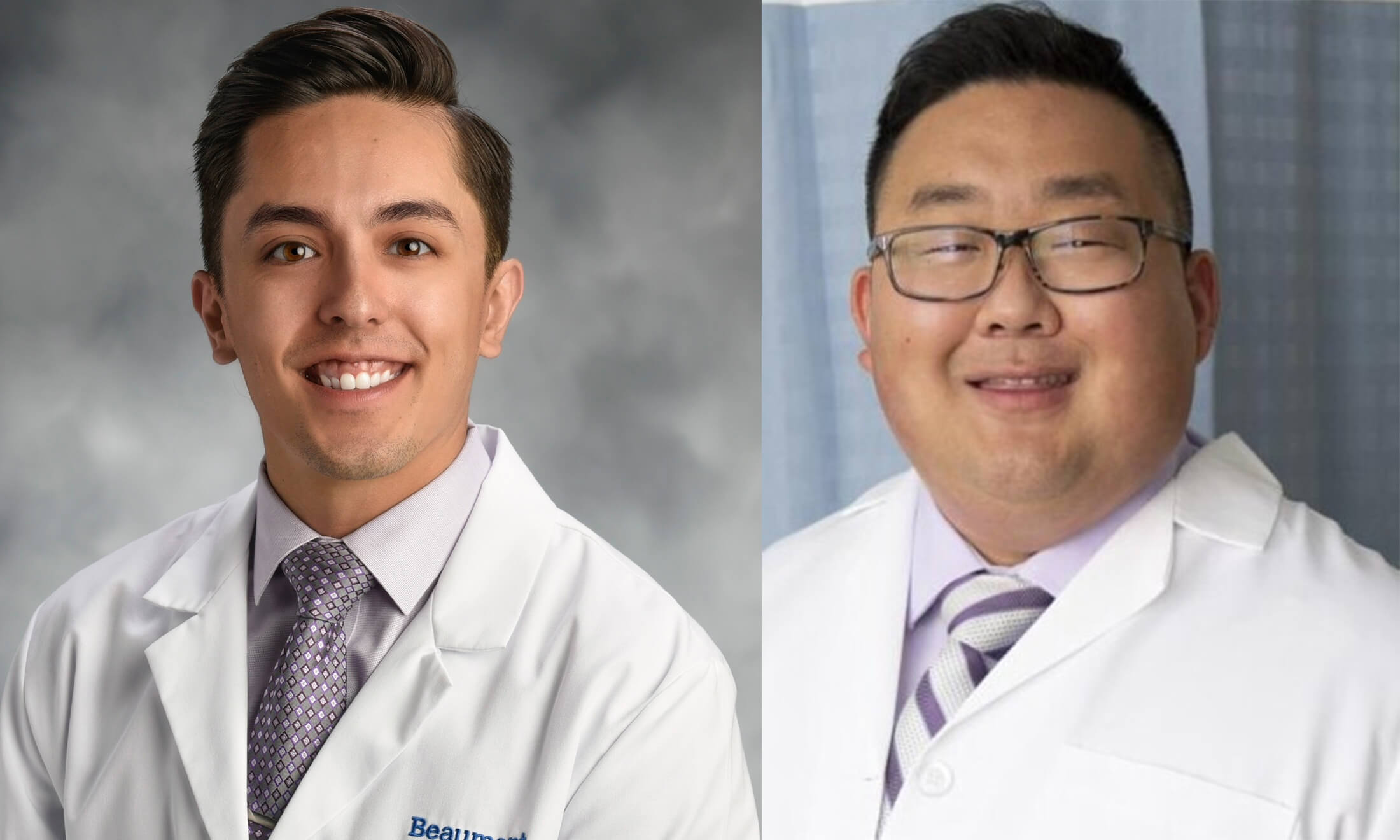
 March 22, 2022
March 22, 2022
 By Andrew Dietderich
By Andrew Dietderich